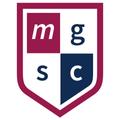Foundation Maths

VCE Foundation Mathematics (Units 1 - 4) provides for the continuing development of students who need mathematical skills to support their other VCE subjects. Successful completion of Foundation Mathematics also satisfies the Numeracy component of the VCE Vocational Major.
Foundation Mathematics focus on providing students with the mathematical knowledge, skills, understanding and dispositions to solve problems in real contexts for a range of workplace, personal, further learning, and community settings relevant to contemporary society. Students are encouraged to use appropriate technology in all areas of their study.
The areas of study for Foundation Mathematics Units 1 - 4 are:
- Algebra, number and structure
- Data analysis, probability and statistics
- Discrete mathematics
- Space and measurement
The award of satisfactory completion for a unit is based on whether the student has demonstrated achievement of the set of outcomes 1, 2 and 3 listed below. All assessments at are school based, are a part of the regular teaching and learning program and completed mainly in class and within a limited timeframe. The decision will be based on the teacher’s assessment of the student’s overall performance on assessment tasks designated for the unit. Example assessment tasks include - Assignments, summary or review notes, tests, reports on an application or use of mathematics and presentations in oral, written, poster, or multimedia format.
Student qualities:
- Students need to be committed and engaged with their study of Mathematics and enjoy consolidating application skills to real life math problems – learning how to model and apply mathematics to solve problems.
- Students need to do independent revision and study of the mathematical techniques learned.
Outcomes for satisfactory completion:
- To be able to use and apply a range of mathematical concepts, skills and procedures from selected areas of study to solve practical problems based on a range of everyday and real-life contexts.
- To be able to apply mathematical processes in non-routine practical contexts, including situations with some open-ended aspects requiring investigative, modelling or problem-solving techniques or approaches, and analyse and discuss these applications of mathematics.
- To be able to apply computational thinking and use numerical, graphical, symbolic and statistical functionalities of technology to develop mathematical ideas, produce results and carry out analysis in practical situations requiring investigative, modelling or problem-solving techniques or approaches.
